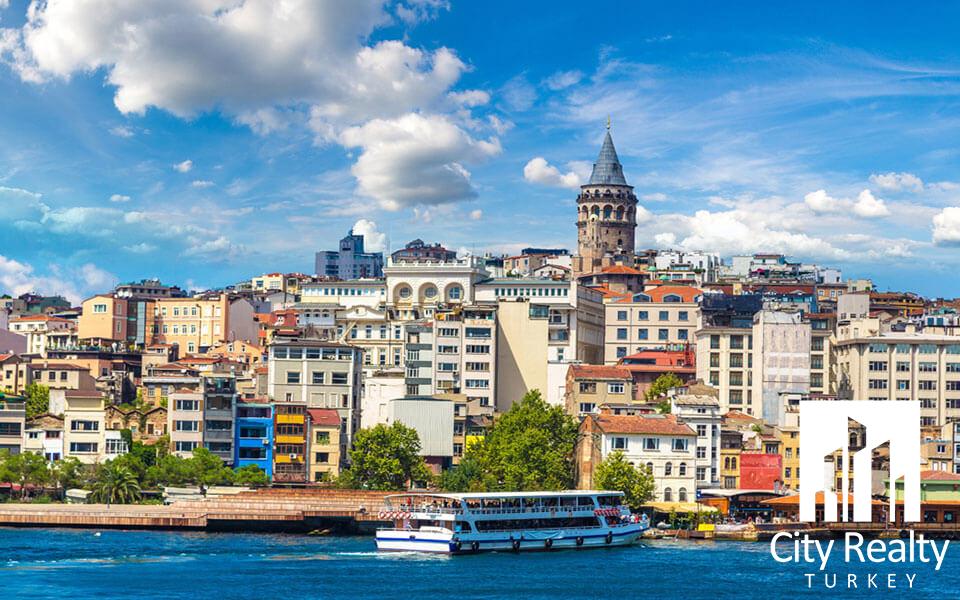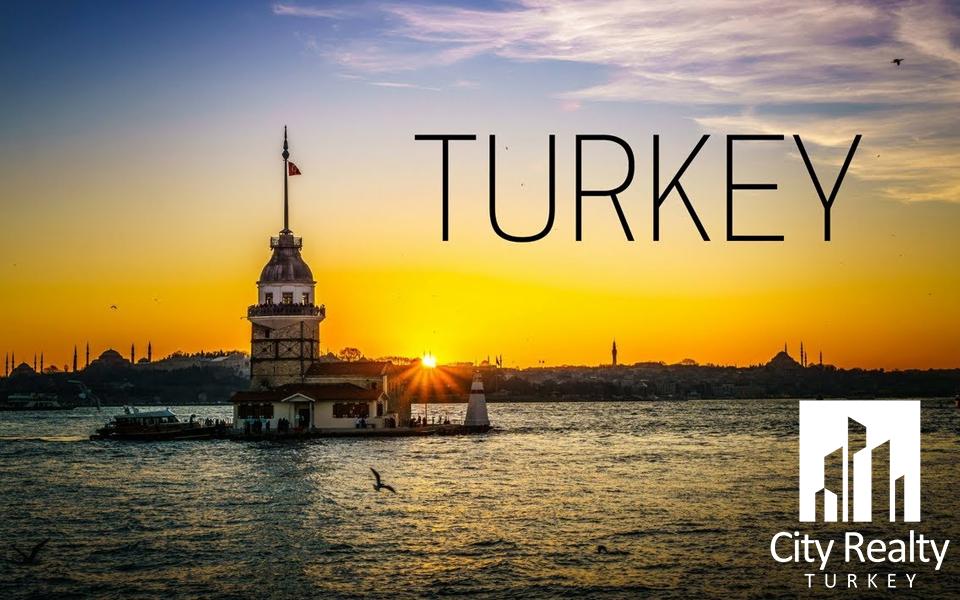Introduction of guidance for living in Turkey
Turkey is Iran’s northwestern neighbor. A country where half of it is a neighbor of Asian countries and the other half is a neighbor of European countries and due to its proximity to Iran in terms of culture and lifestyle are very similar to Iran. In this article, we are giving a through guidance for living in Turkey. Living in Turkey can be suitable for many people.
We begin this article with a general overview of Turkey’s geography, Turkish climate, type of government, provincial divisions and major cities in Turkey, and atlas-like information, and then move on to more detailed topics of life in Turkey, such as culture and customs, lifestyle, and Turkish cuisine, urban living in Turkey, working and investment status in Turkey, Turkish working days and holidays, Turkish transport system, Turkish education system, Turkish healthcare system, cost of house expenses to give off a perfect guidance for living in Turkey.
This article has tried to examine and scrutinize everything you need to choose Turkey to live in. So you can choose with comprehensive information.
Geography of Turkey
Turkey is a vast country in the Eurasian region, surrounded on three sides by the sea. The country’s northern borders are covered by a large area of the Black Sea; half of the southern borders of the country are surrounded by the Mediterranean Sea. With guidance for living in Turkey you can find suitable lifestyle for yourself in this country.
The country’s land borders are mainly in the east and southeast of the country; Turkey has wide land borders with Iran and Armenia from the east and Iraq and Syria from the southeast and south. It also shares a land border with the European country of Bulgaria to the northwest and the European country of Georgia to the northeast.
Turkey’s border with its western and European neighbor, Greece, includes sea and land borders, which are very complex and disputed between Greece and Turkey. Living in Turkey is more affordable than in other European countries.
In addition to its capital, Ankara, Turkey has three other extensive and populous cities, Istanbul, Izmir, and Antalya, which we will discuss in more detail below.
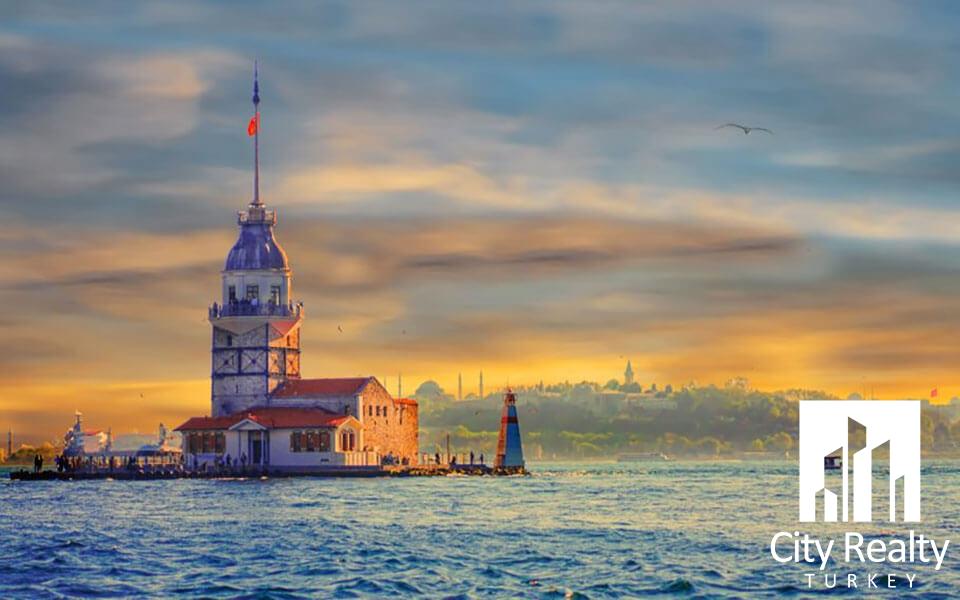
Turkish Weather
Turkish cities have a variety of climates in each season due to their geographical location, abundant mountain ranges, and proximity to the Black Sea and the Mediterranean. Some Turkish cities, such as Antalya, Izmir, and Istanbul, which are built on the coast, have cold and rainy winters and hot and relatively dry summers. Spring, autumn, and summer are some of the best times for tourists, especially in the coastal areas of this country. Living in Turkey can be suitable for many people.
The rest of the Turkish cities follow a similar pattern, except that they may have a colder winter or a warmer summer.
Turkish political system and currency
The political system of this country is a republic. Hence its original name is the Republic of Turkey. The capital of Turkey is Ankara, which is located in the central part of the country. The currency of Turkey is the lira, which is known by the abbreviation TL. The all-red flag with the crescent and white star symbol is the symbol of this country.
The official language of Turkey, as the name implies, is Istanbul Turkish, which differs from Azeri Turkish (the official language of Azerbaijan) in some ways. The script of the people of this country is the same Turkish language which is written in the Cyrillic alphabet or the Latin script. Living in Turkey can have certain benefits.
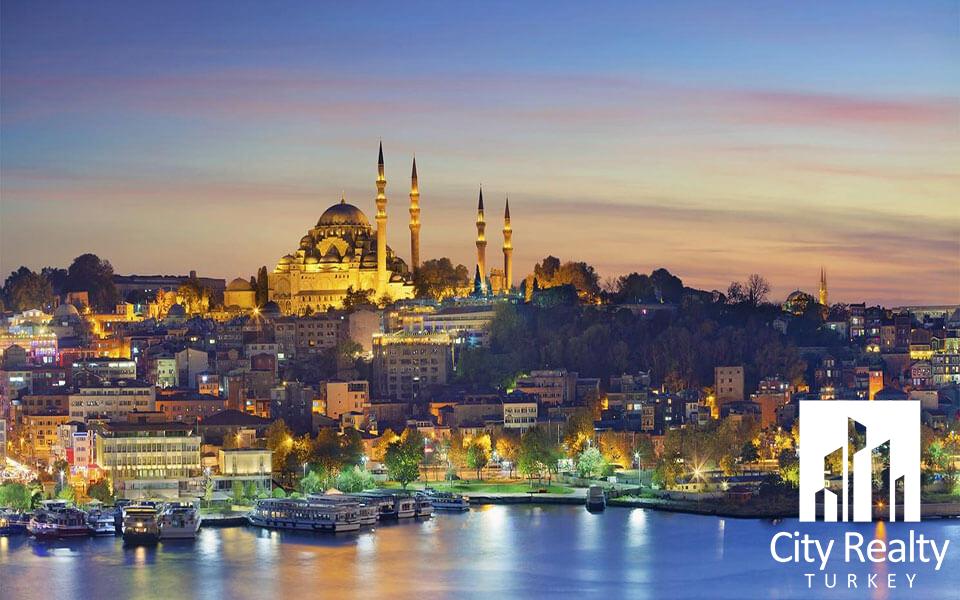
Provincial divisions and major cities of Turkey
Turkey is divided into seven regions or climates (in Turkish: bölge) by decrees passed by the Congress of Geography in 1941. This division was formed based on the climate and geographical conditions of the regions, and each region has several provinces.
In total, Turkey has 81 provinces; the names of the central cities of all these provinces are the same as the name of the province. Only the three provinces of Khatai, Ghoja Ili, and Sakarya are not like this, and their centers are called Antakya, Izmit, and Adapazari, respectively. By getting a guidance for living in Turkey you’ll have clear understanding of benefits of living in Turkey.
- Istanbul
With a population of 15,067,724, Istanbul is the most populous and famous city in Turkey, with many tourists visiting its tourist attractions every year. As you can see in the picture above and on the map, this city is located in the westernmost point of Turkey, the farthest distance from Iran and in the European part of Turkey, on the shores of the Black Sea and the Sea of Marmara. Living in Turkey is more affordable than in other European countries.
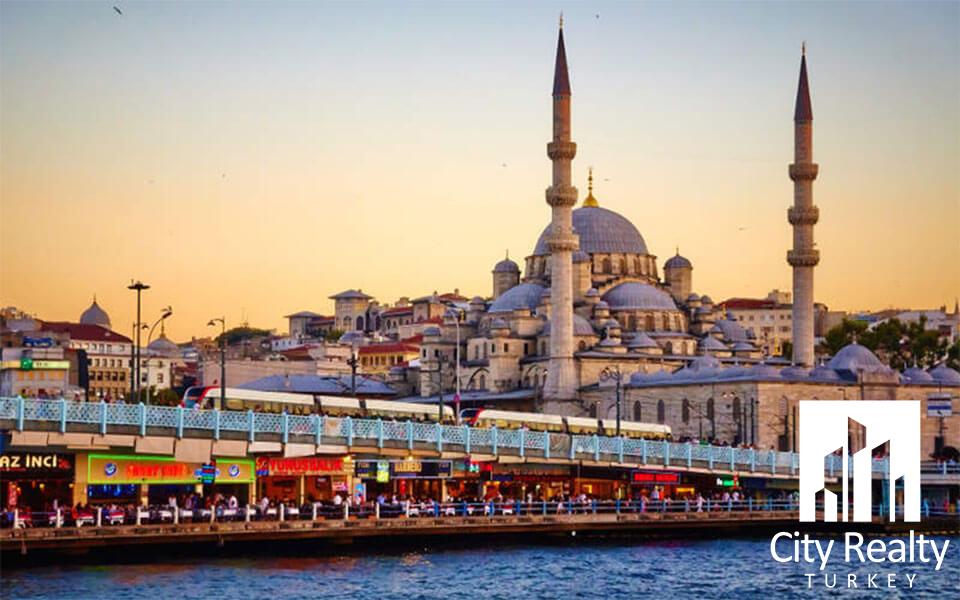
Turkey can be the link between Asia and Europe to know.
It is the largest metropolis in Europe and the second-largest metropolis in the Middle East after Cairo, Egypt, which is very popular with tourists due to its large and famous historical monuments such as the Hagia Sophia and the Ball Museum.
Hot and humid summers and cold, rainy, and snowy winters are characteristic of Istanbul’s climate. The climate of this city is temperate, and it is usually in a suitable temperature range in winter or summer. Living in Turkey can be suitable for many people.
- Ankara
Ankara is the capital and political center of Turkey, and with a population of 5,445,026, Istanbul is the most populous city in Turkey. The city of Ankara has a strong economic base in Turkey and can be considered one of the best destinations for foreign investment in Turkey. In recent years property investment in Turkey has become one of the most important opportunities for investing. For more information contact CityRealtyTurkey.
The average annual temperature in this city is 11.7 ° C, and the rainfall in this city is generally low. Temperatures in the winter of this city rarely fall below 15 degrees below zero. Living in Turkey can have certain benefits.
- Izmir
Izmir is the third most populous city in Turkey, with a population of 2,938,546. This port city is located on the shores of the Aegean Sea and is one of the commercial, industrial, and port hubs of Turkey. The city is also famous for tourism, and its beautiful beaches attract many tourists to this port city every year.
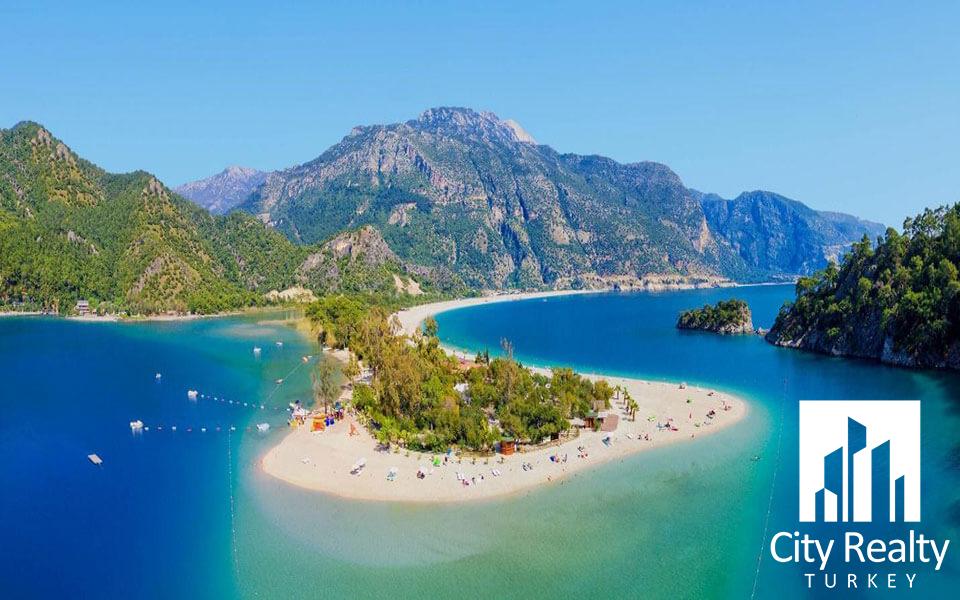
Study in Turkey One way is to get a residence permit in Turkey.
Izmir also has a temperate Mediterranean climate, with hot summers reaching a maximum of 31 degrees Celsius (although a record 46 degrees Celsius has been set for the city). The winter in this city is often accompanied by rain, and the winter temperature rarely falls below 12 degrees Celsius, and it usually does not snow in this city. Living in Turkey is more affordable than in other European countries.
- Antalya
Antalya, with a population of 1,311,471, is the seventh most populous city in Turkey, located on the beautiful shores of the Mediterranean Sea. This city is one of the most important tourist destinations in Turkey, the beauty of its beaches is unique in the world. Its beautiful beaches and numerous tourist destinations have made it one of the most popular tourist destinations, like the city of Istanbul.
The climate of this city is hot and humid. It has hot summers, and the average temperature in summer is between 28 and 36 degrees and sometimes rises to 40 degrees Celsius. In winter, the temperature of this city is more balanced and is on average between 9 and 15 degrees Celsius, and snow and ice are rarely seen in this city. Living in Turkey can have certain benefits.
Culture and customs of the Turkish people
The culture of the Turkish people is very close to the culture of the Iranian people due to its proximity to Iran and having religious and cultural commonalities. The Turkish people are very hospitable and patriotic people.
An interesting case related to the patriotism of the Turkish people dates back to 2016. After the failed coup in this country, about 1.5 million Turkish flags will be sold in the country tomorrow. The Turkish flag is a sacred symbol for the people of this country. Living in Turkey is more affordable than in other European countries.
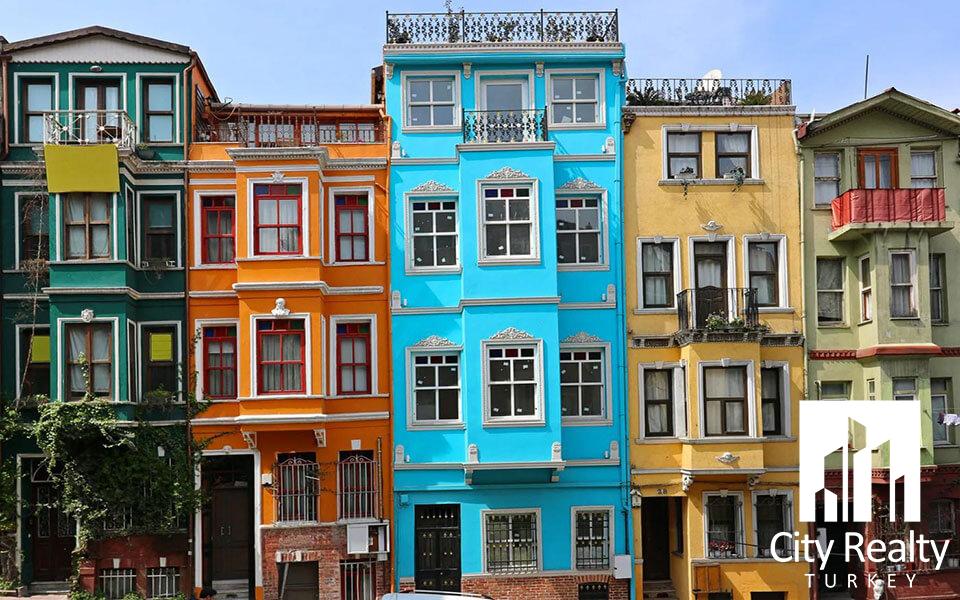
The most important population difference of the Turkish people is the language.
Turkey is almost a religiously united country with 99.8 percent of its population being Muslim, 75 to 85 percent of Turkish Muslims being Sunni, and 15 to 20 percent Alawite. The Muslim religions of this country are in the minority.
Turkey is made up of a majority of Turkic-speaking and Kurdish-speaking regions in the southeast of the country, bordering Iraq and Syria. About 70 to 75 percent of Turkey’s population is Turkish-speaking, and 18 percent is Kurdish-speaking. The Kurdish regions of Turkey are generally considered to be deprived provinces and have not developed as well as other provinces in Turkey due to their minority status. Living in Turkey can be suitable for many people.
One of the very good cultures among the Turkish people is respect for animal rights and animal welfare. Almost all tourists who have traveled to Turkey have noticed the love and respect of the Turkish people for animals. Feeding and sheltering animals is a common practice among the Turkish people, and animal cruelty is hated and condemned.
Due to this culture, the municipalities of large cities also have very good treatment of animals, and while protecting and numbering the animals, they also vaccinate them. Living in Turkey can have certain benefits.
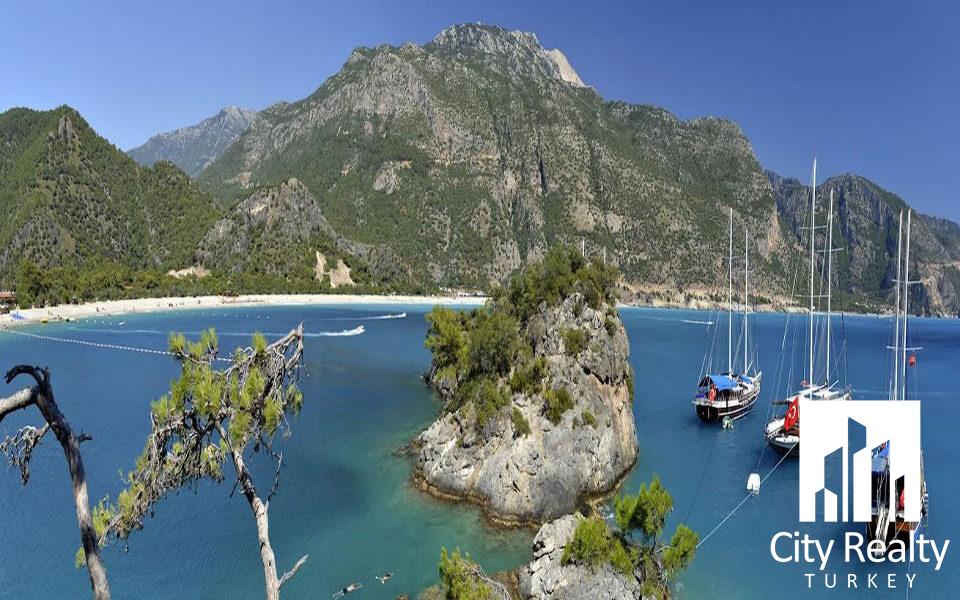
Other popular cultures of the Turkish people include respect for the elderly.
Hand kissing of elders is common in this country and is considered a sign of respect. Usually, people use the titles Abla and Abi, meaning big sister and big brother, even when they are complete strangers to each other. It is very common in Turkish culture to use these two titles to address strangers regardless of age.
The culture of marriage in this country is similar to Iran, and there are slight differences between the two countries. One of the differences is that women use their husband’s surname after marriage. Living in Turkey is more affordable than in other European countries.
In terms of surnames, there was no surname in this country until 1934. After 1934, when surnames became mandatory in this country, people began to use their father’s surname in their surnames, so that family letters had the word Oglu (meaning son) increased in this country (like Ahmed Oglu meaning son of Ahmed).
In 2013, statistics were published on the most common surname in Turkey, which introduced Yilmaz as the most common surname in Turkey. Living in Turkey can be suitable for many people.
Lifestyle and food of the Turkish people
The lifestyle and food of the Turkish people in the eastern regions, such as Iran, is based on meat and spicy foods, and the further west we go to this country, the less the food tends to be vegetarian and the use of spices. Breakfast is a very important meal – it can either make or break your day. For this reason, two types of two-meal and three-meal diets may be observed among the Turkish people. Living in Turkey can have certain benefits.
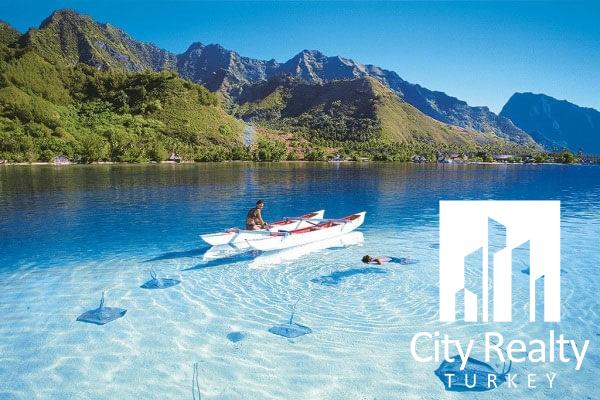
Turkish public universities usually cost between $ 400 and $ 4,000.
The three-course diet, like the Iranian diet, includes breakfast, lunch, and dinner, but in the two-course diet, the lunch is omitted due to the elaborate breakfast and is replaced by fruit and snacks. So if one day you were a guest of a Turkish family and you witnessed this, do not consider the omission of lunch as disrespectful and lack of hospitality.
Among the dishes cooked in this country, the types of soups are more popular among the Turkish people; the Turks eat different types of soups almost before every meal and even before breakfast, the type of these soups varies according to each season of the year.
Among the drinks, tea is very popular among the people of this country, and the Turkish people drink a lot of tea and like to pour their tea into small cups and drink it sweet by dissolving sugar and sugar. Living in Turkey is more affordable than in other European countries.
In general, the style of Turkish food is very similar to that of Iranians, and even in Iranian cities, we see restaurants with Turkish food, which has many fans, and many of their dishes have entered the menu of Iranian restaurants.
Urban life in Turkey
Urban life in Turkey can be described by the category of urban services in Turkey. What services the people of a city have access to in urban life can be an accurate description of urban life in a country. Most Turkish people have access to services such as water, electricity, telephone, and even gas, which we will try to explain briefly below. Living in Turkey can be suitable for many people.
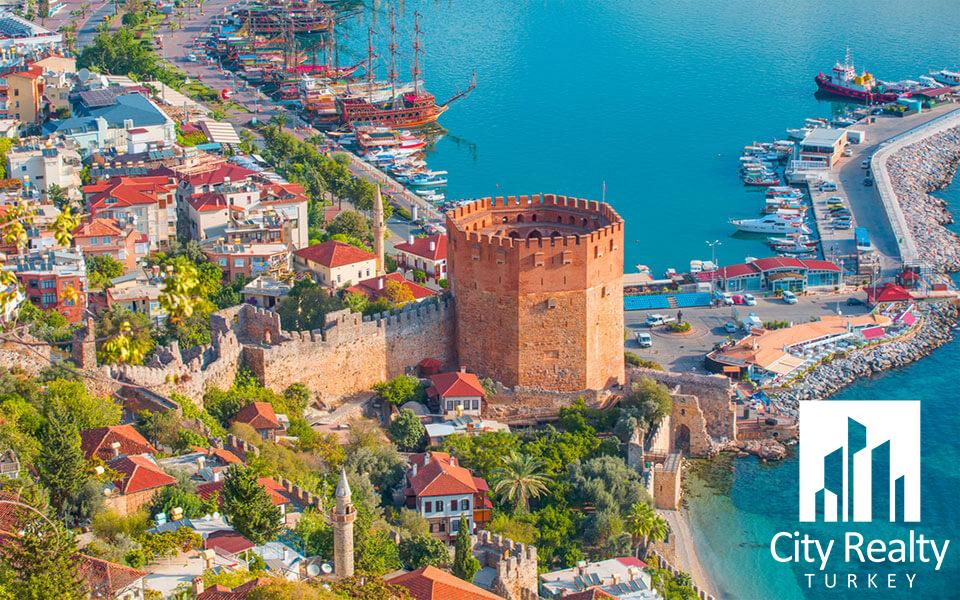
- Domestic gas piping in Turkish cities
As you know, Turkey, unlike Iran, does not have large sources of gas and fossil fuels, and most of its gas is imported from neighboring countries such as Iran, Iraq, and Russia. Therefore, the price and access of Turkish people to natural gas may not be as low and easy as in Iran.
Natural gas pipelines cover approximately 78 of Turkey’s 81 provinces, and only in some tropical or disadvantaged areas is there no gas piping. Living in Turkey can have certain benefits.
- The municipal electricity system in Turkey
Electricity is also an expensive energy in Turkey. As we mentioned, the production of electricity in this country is mostly done by imported gas, and for this reason, the production of electricity requires a lot of money.
Most energy consumption in the domestic and commercial spheres is for electricity, and in homes, they have a higher priority for heating water and heating appliances. Due to the high cost of energy in Turkey, most shops and small companies prefer to use the services of coffee houses that are located on many streets and do not set up a water house at work. Living in Turkey is more affordable than in other European countries.
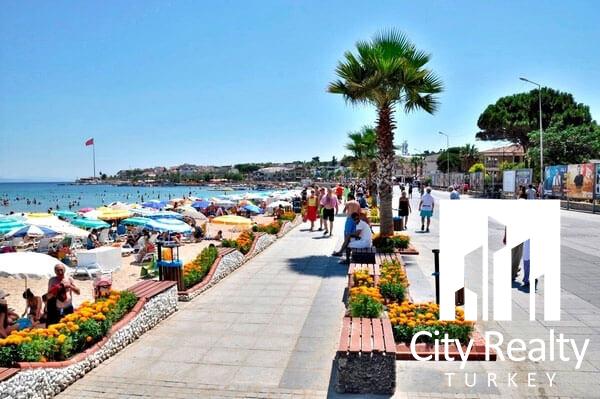
- The urban water system in Turkey
The quality of municipal water in most cities in Turkey, including Istanbul, is only suitable for washing, and for cooking and drinking, you have to buy drinking water from shops. In fact, this is a system that is common in many European countries, and unlike Iran, the municipal water supply system is used only for washing. This system reduces the cost of water treatment and prevents wastage of drinking water for use in washing and cleaning. Living in Turkey can be suitable for many people.
Labor and investment situation in Turkey
Turkish people usually work 9 hours a day, which is 45 hours more per week than European countries with 40 hours per week. As mentioned in the previous section, Saturdays and Sundays are closed in this country, and in fact, there are official working hours 24 days a month.
The salary base in Turkey is 2942 lira, which is paid after tax and insurance 2324 lira. In 2019, the average annual income in Turkey was 642,147 lira, and the dominant income of the people this year was 980.80 lira. Living in Turkey can have certain benefits.
The main industry of Turkey is tourism, and Turkey receives a large annual income from this industry, But industries such as fashion and clothing and the manufacture of machine parts are also very active in this country and will probably bring a lot of income to this country in the coming years.
Foreigners can acquire citizenship by buying a home in Turkey.
Tax and investment system in Turkey
Residents of Turkey will be eligible to pay taxes if they reside in the country for more than six months a year. Of course, if you have been in the country temporarily for more than six months, it is possible to be exempt from possible taxes. Living in Turkey is more affordable than in other European countries. Also, all people who own real estate in Turkey will be subject to tax, and whether or not they reside will have no effect on tax laws.
Turkish income tax is levied on labor or on the amount of rent received and the profit from an investment, and it does not matter where the profit comes from. Income tax on people living in Turkey includes tax cuts and credit facilities. This rate usually varies between 15 and 35%.
Turkish healthcare system
Turkey has grown significantly in the health sector over the past decade, with about $ 120 billion invested in it. The situation in Turkey in the healthcare system has changed compared to the past, and the most important sign of this is the decrease in the rate of medical services in this country.
The health care system in Turkey is such that 41% of the medical and health expenses of the Turkish people are covered by taxes, 31% of the insurance companies are responsible for it, and the people pay the average of the remaining 28% of these expenses. Living in Turkey can have certain benefits.

Living in Turkey can be a good experience for people who want to experience a new atmosphere.
In Turkey, thanks to the Public Health Insurance System (GSS), health services are provided to all citizens, and thus many of the medical and care costs are covered by the government. The government has opened a special account to cover these expenses on various taxes, including car taxes and property taxes.
The style of health care is similar to the American style, in that the doctor initially prescribes any medication to the patient, but from the third drug onwards, more money is charged to the person receiving the medication. This is an advantage that removes the burden from physicians and medical service groups. Living in Turkey is more affordable than in other European countries.
Benefits of living in Turkey
- Favorable weather in most parts of the country
- Delicious food (if you are not a vegetarian!)
- Reasonable cost of living
- Growing economy
- Diverse transportation system
- Existence of diverse tourist areas and suitable for any taste
- Obtaining easy accommodation
Having a company in Turkey, CityRealtyTurkey specializes in obtaining a residence permit in Turkey and buying a house in Turkey. If you need our advice and help, you can visit cityrealtyturkey.com.
